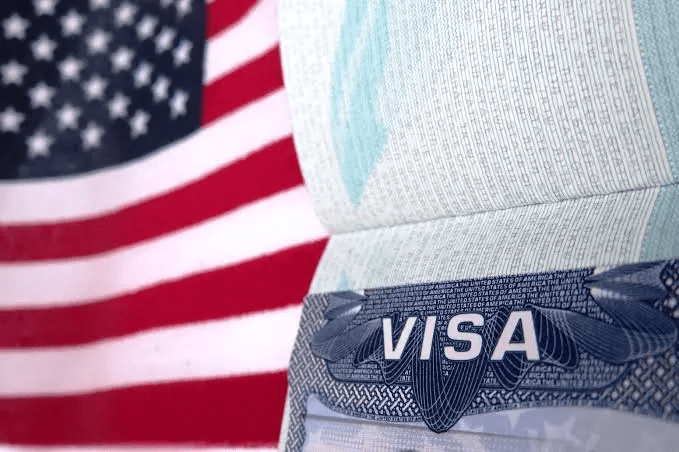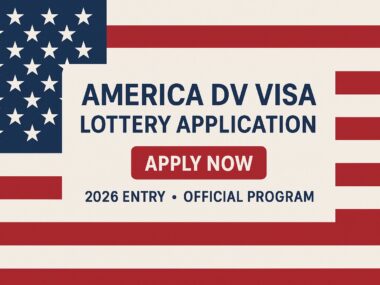The risks are very significant for those who seek F1 student visas. The result of the visa interview will decide where young adults accepted to universities will live for the following four years or more!
Your family’s aspirations and your dreams hinge on that interview. Studying in the US can help you succeed professionally and give you many opportunities.
The anxiety associated with applying and interviewing during this period is well-known to international students who have already completed the F1 visa application process.
They find it burdensome, time-consuming and requires much patience and paperwork. After months of preparation, some candidates nevertheless get their student visas denied.
If you were in this situation, what would you do? It’s crucial to stay calm, gather information on why your F1 student visa was rejected, and reapply.
Why Was My F1 Visa Application Denied?
After receiving your F1 student visa denial, it is essential to understand why it was denied. Remember that there is no appeal process, but reapplying is an option.
You would receive news about the rejection from the embassy or consulate you applied to, and it is possible to ask the consular officer the exact reason for the denial. If the problem can be fixed, you can start and submit a new application.
Common Reasons for F1 Visa Denial

1. Intent to Remain in the US after Finishing School
This is the primary reason a visa officer will most likely deny your F1 visa application, and it’s also the most significant consideration they make throughout the interview. Rejection is guaranteed if the visa officer even remotely suspects you do not intend to return to your country of origin.
Be ready to discuss your relationships with family, real estate, and enterprises back home. In the second interview, clarify that you intend to return home once you graduate.
2. Insufficient Financial Support
It’s possible that your financial circumstances impacted your initial application rejection. More financial assistance would require you to work to pay for your education, which contradicts the intent of obtaining a student visa.
The visa officer’s inspection ensures you have the money to cover your living expenses and educational costs while in the country. Be sure you have the funds needed to become an international student when you reapply for your visa.
Several options to close the financial aid gap include loans and scholarships.
3. Questionable University, Degree, and Goals
Your academic records must be authentic to avoid raising red flags with the visa officer. The visa officer examining your application can have doubts about the validity of the college, course of study, or degree you are applying for.
They want you to prove that you are a legitimate student. Low exam scores and poor English proficiency can result in prompt rejection. During your interview, questions about your academic background will also be covered.
Giving a justification for your course and university choices is an excellent reason to be rejected. Ensure the consular officer understands your objectives and is consistent with your previous coursework or employment.
4. Poor or Unsatisfied Interview
A significant portion of the application process is the interview. Take your visa interview seriously, as a lot is on the line. If your interview was the cause of your rejection, you should assess yourself and make a list of strategies for strengthening your interviewing abilities.
It would be best to work on maintaining eye contact and answering queries immediately with well-chosen sentences.
- Punctuality is crucial to Americans, so be on time
- Dress professionally
- Hold yourself with confidence
- Be honest
In general, visa officers expect candidates to be well-mannered and self-assured, so any inkling of nervousness or lack of confidence could mean another rejection of your F1 student visa. Identify your weak spots and work on them before your following interview.
5. Lack of or False Information
Your entire profile needs to be accurate and up to date. A shortage of paperwork implies that you might be hiding something and should take the procedure seriously.
Thus, ensure you have all the paperwork needed for the consulate or embassy. These forms must also include accurate and truthful information. The last thing you should do is tell the visa officer a lie.
False documents or material would require instant rejection. Make sure every piece of data you have is accurate and consistent.
How to Reapply for an F1 Visa
If you want to reapply for an F1 visa, a new application must be created, the visa fee must be paid again, and another interview must be scheduled!
There is generally no rule for when you should reapply for your student visa. However, after your initial rejection, it is best to understand why you were denied and then take the necessary steps to solve this problem.
You can reapply when you have new information that can convince the officer that you are a worthy candidate for the visa. If you schedule your second visa interview too soon and your situation has stayed the same since your denial, you risk receiving another denial.
If your student visa was denied due to a lack of necessary documentation or information the visa officer needs, your application will be reviewed again. You will be given a letter containing a list of the documents required to continue the process.
Follow the directions of the letter and turn in the necessary documents. If your visa was denied due to administrative processing, then the only action to be taken is to check your application status periodically.
Preparation and Tips for Reapplying for Your F1 Student Visa
The key to success will be understanding why your F1 visa was denied and correcting the problem. However, to help ensure the rest of your application process goes as smoothly as possible, we have compiled some additional ways to strengthen your application:
- Be clear about your intention to return to your home country after school.
- The interview will be in English, so it would benefit you to practice and sharpen your English skills. Wait to prepare a speech, but be ready to have a conversation.
- Study the program you are going into and be able to explain how it pertains to your future career.
- Bring all documents related to your coming to the US. Providing scholarship letters, admission letters, all financial documentation, and letters of recommendation will increase your chances of approval. The more information you have, the better the chances that your student visa will not be denied again.
- Be concise and have an enthusiastic attitude during the interview. Visa officers are usually under time pressure, so it would be beneficial for you to have short answers and to-the-point answers.
- Get personalized advice and guidance from an immigration attorney.
How Many Times Can You Apply for an F1 Visa?
There are no restrictions on the number of times you can reapply for a visa so that candidates can apply as often as necessary. However, those who reapply should provide the visa officer with new information and solutions to problems seen in the previous application.
Reapplying without new information would be a waste and a sure way to be refused again for the same reasons.
Conclusion
Even though receiving a visa denial can be depressing, never give up on your trip ambitions! You can significantly improve your chances of success by comprehending the reasons behind the rejection and including necessary supporting documentation when you reapply.
Recall that a neatly structured new application with straightforward explanations and relevant supporting paperwork shows that you are committed to adhering to visa requirements and leaving your home country.
For a chance to make your trip dreams come true, carefully consider the grounds for rejection, gather the required paperwork, and reapply with confidence.


